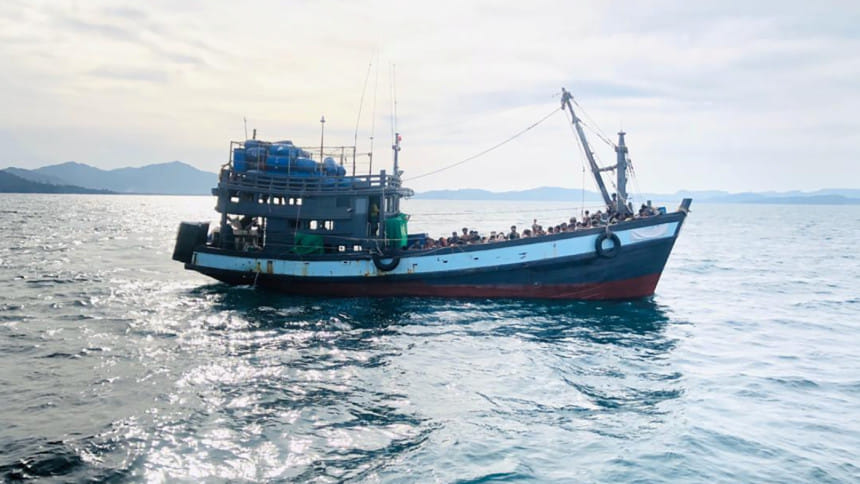HRW urges Bangladesh to take in Rohingyas stranded in the Bay

The Bangladesh government should immediately allow the Rohingya refugees stranded on board two trawlers in the Bay of Bengal to come ashore and receive necessary food, water, and health care, Human Rights Watch (HRW) said today.
The United Nations refugee agency, UNHCR, warned that the Rohingyas may have been at sea for weeks without adequate food and water, according to a HRW news release.
On April 23, 2020, Foreign Minister Abdul Momen said the country would refuse entry to more Rohingyas, the HRW release mentioned.
"Bangladesh has shouldered a heavy burden as a result of the Myanmar military's atrocious crimes, but this is no excuse to push boatloads of refugees out to sea to die," said Brad Adams, executive director of Human Rights Watch's Asia Division.
"Bangladesh should continue to help those at grave risk and preserve the international goodwill it has gained in recent years for helping the Rohingyas," he added.
Inhumane push backs of boats by countries in the region have placed refugees and asylum seekers' lives at risk, said the global rights group.
Malaysia recently pushed one and possibly more fishing trawlers with hundreds of Rohingya asylum seekers aboard back to sea, and Thailand has indicated that it will refuse entry to Rohingya boats.
On April 15, Bangladesh Coast Guard officials rescued one boat of Rohingya refugees which had reportedly been turned away by Malaysia nearly two months earlier. About 390 starving Rohingyas, most under 20 years old, were brought ashore, with reports that as many as 100 may have died on board before the rescue.
HRW said some of the stranded Rohingyas may be among those who have left the refugee camps in Bangladesh over the last four months in an attempt to reach Malaysia.
Bangladesh should continue to uphold its international obligations not to return refugees to places where they face persecution, and not to return anyone to where they would face a risk of torture or other ill-treatment, the HRW statement read.
All countries, including Malaysia and Thailand, have the responsibility under international law to respond to boats in distress, enact or coordinate rescue operations within their search and rescue operations, and not to push back asylum seekers risking their lives at sea, HRW said.
Under international law, public health measures taken in response to the Covid-19 pandemic must be "proportionate, nondiscriminatory, and based on available scientific evidence," it also said, adding "…the pandemic cannot justify a blanket ban such as Bangladesh's refusal to allow any Rohingya now or in the future to disembark. Forcing them to remain on the boat also risks their right to health."
The Myanmar government bears responsibility for creating the Rohingya refugee crisis, it said, adding about 900,000 Rohingyas are currently living in overcrowded camps in Bangladesh, while an estimated 600,000 Rohingyas who remain in Rakhine State in Myanmar are subject to government persecution and violence.
It said the resources of the Bangladesh government are under great strain as the country grapples with the spread of Covid-19, calling upon donors to help Bangladesh to set up quarantine centres and provide medical assistance and infrastructure support to help fight the spread of Covid-19 in the camps and neighboring communities.

 For all latest news, follow The Daily Star's Google News channel.
For all latest news, follow The Daily Star's Google News channel. 



Comments